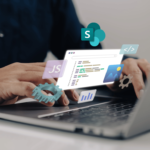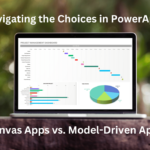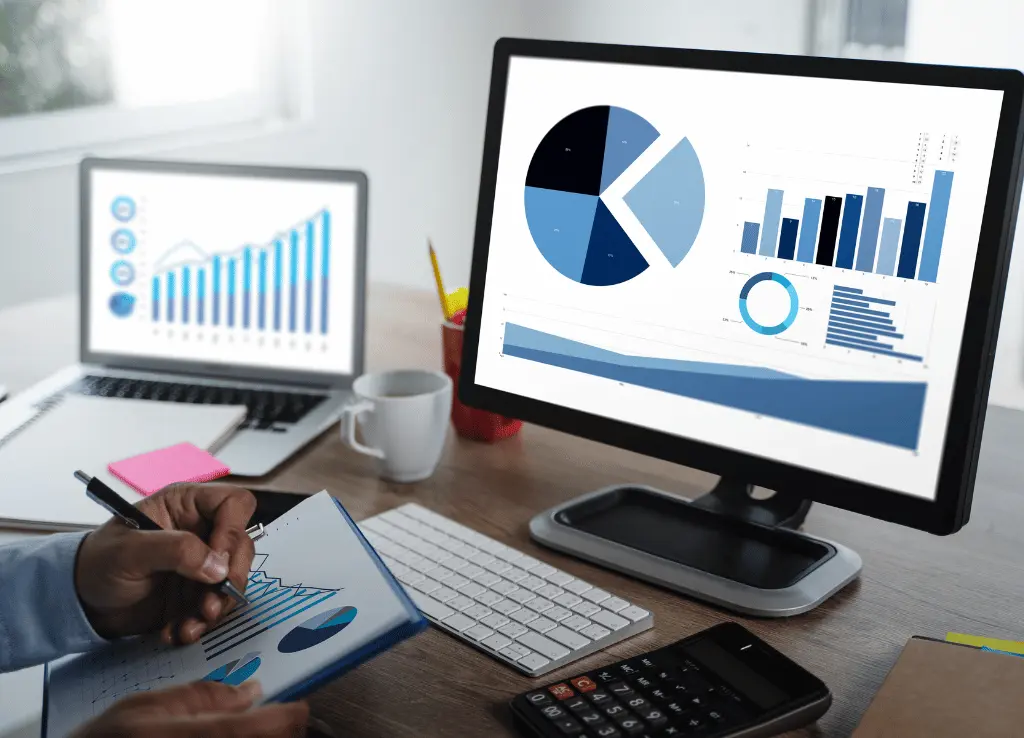Microsoft Power BI and Tableau are known for their strong features and are quite popular as well as their user-friendly interfaces.
These tools help organizations make more use of their data with complex visualizations and all-inclusive dashboards.
This examination goes into what makes each platform unique and why Power BI consulting services are important. Businesses need help navigating through data analysis to ensure they choose the best tool according to their specific needs.
Microsoft Power BI: Deep integration with other Microsoft products means that those already in the Microsoft ecosystem will find using Power BI consulting services.
Consulting Services for Power BI: Organizations looking for custom solutions should engage consultants specialized in Power BI.
Such experts will assist in not only deploying but also training staff on how to use it correctly, streamlining data governance procedures and creating personalized dashboards aligned with strategic business objectives.
Their knowledge is essential when it comes to unleashing the full potential of this software thus making decision-making processes driven by information more effective throughout a company.
Thus, the implementation of Power BI Vs Tableau for business analytics should depend on the following factors:
1. Integration requirements include the necessity to use Power BI for businesses that are heavily incorporated with Microsoft services. Naturally, it is perfectly compatible with other Microsoft products, such as Excel and Azure, making it the best choice for people aiming for a Christian analytics integration process.
2. Visualization includes the necessary spectrum of possibilities that can be genuinely satisfied with Tableau users that might provide the sophisticated and powerful visual analytics that demand comprehensive and complicated visualization. Each of the tools could have excellent dependency.
It provides many reporting function options at an affordable cost, which is why businesses should choose this alternative if there is an opportunity.
However, the solution and analytics platform in each case would depend entirely on the strategic objectives of the business and its operational activity nature.
Whether it is high compatibility with other Microsoft products, excellent visualization, or tight company budget rebuilding solutions. Still, the true choice would involve a more comprehensive examination of what Power BI and Tableau can provide and how such features match the company’s overall data strategy.
Power BI : Beyond Innovative Horizons
Power BI is a modern product in a bundle of the most innovative analytics tools provided by Microsoft. It enables us to turn data into lucid, easy-to-understand stories that draw attention.
This solution is well-known for its powerful capacity and highly convenient interface that seamlessly integrates with all Microsoft applications.
In “Power BI vs Tableau”, Power BI looks like an excellent option for companies using the vast infrastructure of the American Corporations “Power BI vs Tableau” Microsoft oriented is the phrase one will notice in comparisons because companies that work within Microsoft’s environments are tend to leverage their huge ecosystem.
Key Features of Power BI
Effortless Integration: Power BI flawlessly merges with other Microsoft tools like Azure and Office 365.
Additionally, these dashboards can be integrated into other applications, streamlining the user experience.
Secure Data Sharing: With Power BI, sharing insights and data within the organization is both secure and easy, ensuring that information integrity and confidentiality are upheld.
High-Performance Cloud Platform: As a cloud-based service, Power BI delivers robust performance that surpasses many traditional on-premises solutions, which often face challenges like limited memory or processing power.
Distinctive Features of Power Bi vs Tableau
Intuitive Design: Tableau’s interface is user-centric, transforming complex data interactions into simple, intuitive operations that yield impactful visual results. This ease of use is something that Power BI consulting services often highlight when comparing platforms.
Versatile Connectivity: The platform is exceptionally adaptable, allowing users to connect and visualize data swiftly, thereby supporting a lively analytical workflow. This flexibility is a critical aspect often explored in sessions with Power BI consulting services, as businesses consider their options.
Sophisticated Visual Tools: Tableau offers a broad spectrum of advanced visualization tools that go beyond what many other analytics platforms provide, enabling users to uncover deeper insights and more nuanced data interpretations.
- Comparative Analysis: The main difference between Power BI and other tools is self-service data analysis, which can be done by non-technical teams on old traditional sources. Bringing that choice Power BI Vs Tableau is by having a profound knowledge of each platform’s strength and acknowledgement of whether they meet the organization’s needs.
- Cost Efficiency: Usually, the Power BI solution turns out cheaper compared with other vendors, which might be the already implemented Microsoft services devices. Its price structure is a scalability-aspect, meant for small businesses and large-scale enterprises as well.
- Data Connectivity: Both systems are stylish in data connection; on the other hand, for the people who already work in the Microsoft ecosystem, Power BI has a small advantage, but it has a slight lead over the integrating capacity.
- Ease of Use: The Tableau interface is frequently hailed for its ease of use in constructing detailed visualizations. However, Power BI has improved usability, becoming Power BI’s match in creating complex visualizations, making it a fierce power.
The Relevance of PowerBI Consulting Services in Strategic Sense
- Power BI consultancy services, notably, are a driving force making it possible to bring out the potential of Power BI within an organization to the maximum. These systems, by enabling customized commodities and sustaining a domain of steady assistance and instruction, help create an environment conducive to learning and implementation.
- Custom Implementation: Consulting services build in the best practices that will blend in organically with current processes and contribute to long-term business strategy by getting the analytical powers of Power BI nearer to the workforce at hand.
- Training and Support: Consultants’ fundamental engagement with business not only in setup and customization but also in a holistic approach of empowering other job roles with the knowledge required to use Power BI effectively.
Weighing Power BI Vs Tableau choice will need more deliberation that can only be made after looking at the organization’s unique needs, budgetary limits, and technology structure.
However, Power BI so complementary to software depends on specialized consulting firms. This is achieved by making the data flow straight into the required system rather than to an extra manual step in the process.
On the other hand, Tableau is a great pick-up for the customers focusing most on modern visualization tools and ease of use.
To figure out what platform is best for their brand, organizations must conduct a strategic analysis of each site while considering their features, maximum cost and the forecasted result of the investment.
Businesses can certainly take the liberty of thoroughly understanding the different strengths of Power BI and Tableau for them to make the best decision which will ensure efficiency and strength in the overall performance of their industry.














